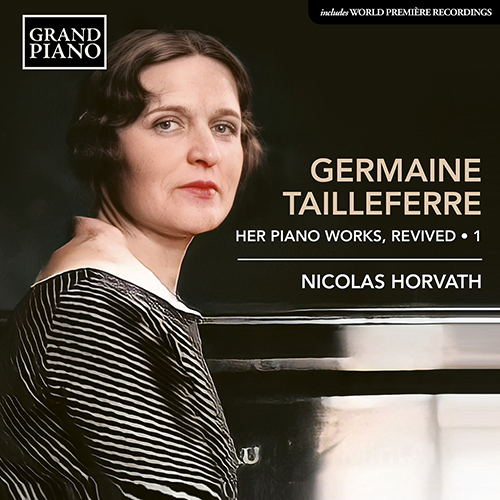
About this Release
“I am thrilled to be able to share the first release in a new series dedicated to the piano music of Germaine Tailleferre. This project is the culmination of years of deep research with the guidance of leading Tailleferre specialist Paul Wehage and many editors who granted me permission to access restricted materials at the Bibliothèque nationale de France (BnF). With the kind support of Tailleferre's granddaughter, Elvire de Rudder, who is the sole copyright owner of all of Tailleferre's music and who very generously shared previously unpublished scores as well as unknown indications by Tailleferre herself on how to perform her music, the series will offer a fresh and new interpretation that respects and reflects the composer's personal tastes and vision of the music as well as the composition period. Like my ongoing Satie series, these albums will chronologically follow Tailleferre's development as a composer, from her early years as a student to her later years as one of Les Six. I hope you will join me on this wonderfully exciting journey to rediscover Germaine Tailleferre. ” — Nicolas Horvath
TAILLEFERRE, GERMAINE (1892–1983)
Her Piano Works Revivied • 1
- Nicolas Horvath, piano
Germaine Tailleferre is best known for being the only female member of the French group of composers known as Les Six, and her stylish combination of neo-Classicism with a ready wit and energy can be compared to Poulenc and Milhaud. From the captivating Romance written while still a student, to her sparkling music for the 1937 Paris international exhibition, all of these pieces show Tailleferre as being very much at the heart of the contemporary French musical scene. This recording, described by the composer’s granddaughter as being ‘as though Tailleferre herself was perfoming these works’, is the first of three volumes presenting the complete piano music played by Nicolas Horvath.
Tracklist
|
Tailleferre, Germaine
|
|
1
Exercice d'Harmonie (Chant Donné par Florent Schmitt) () * (00:00:54)
|
|
2
Impromptu in E Major (1912) (00:02:09)
|
|
3
Romance in A Major (1913) (00:02:16)
|
|
4
Pas trop vite (1914) (00:00:48)
|
|
5
Pastorale in D Major (1919) (00:01:28)
|
|
6
Fandango for Piano (1920) * (00:01:44)
|
|
7
Hommage à Debussy (1920) (00:00:46)
|
|
8
Très vite (1920) * (00:01:57)
|
|
Lully, Jean-Baptiste
|
|
9
La naissance de Vénus, Part II: Grand Dieu des Enfers (arr. G. Tailleferre as Les Maîtres du Chant: Airs de Lully for piano) (1665) (00:01:17)
|
|
10
Monsieur de Pourceaugnac: Répands, charmante nuit (beginning, arr. G. Tailleferre as Les Maîtres du Chant: Airs de Lully for piano) (1669) (00:00:41)
|
|
11
Le triomphe de l'amour: Air pour la jeunesse (beginning, arr. G. Tailleferre as Les Maîtres du Chant: Airs de Lully for piano) () (00:00:50)
|
|
Mancini, Francesco
|
|
12
Son confusa pastorella (excerpt, arr. G. Tailleferre as Les Maîtres du Chant: Airs italiens, Vol. 1 for piano) () (00:00:33)
|
|
Pergolesi, Giovanni Battista
|
|
13
Salustia, Act III: Per queste amare lagrime (beginning, arr. G. Tailleferre as Les Maîtres du Chant: Airs italiens, Vol. 1 for piano) (1732) (00:00:36)
|
|
14
Salustia, Act I: Soleva il traditore (beginning, arr. G. Tailleferre as Les Maîtres du Chant: Airs italiens, Vol. 1 for piano) (1732) (00:00:33)
|
|
15
Salustia, Act II: Il nocchier nella tempesta (beginning, arr. G. Tailleferre as Les Maîtres du Chant: Airs italiens, Vol. 1 for piano) (1732) (00:00:22)
|
|
Leo, Leonardo
|
|
16
Il Demetrio, Act II: Sò che per gioco (beginning, arr. G. Tailleferre as Les Maîtres du Chant: Airs italiens, Vol. 1 for piano) (1732) (00:00:53)
|
|
17
Il Demetrio, Act I: Vorrei dai lacci (beginning, arr. G. Tailleferre as Les Maîtres du Chant: Airs italiens, Vol. 1 for piano) (1732) (00:01:19)
|
|
Latilla, Gaetano
|
|
18
La pena che m'affanna (excerpt, arr. G. Tailleferre as Les Maîtres du Chant: Airs italiens, Vol. 1 for piano) () (00:00:40)
|
|
Hasse, Johann Adolf
|
|
19
Spero si ch'Amor (excerpt, arr. G. Tailleferre as Les Maîtres du Chant: Airs italiens, Vol. 1 for piano) () (00:00:38)
|
|
Monteverdi, Claudio
|
|
20
Il ritorno d'Ulisse in patria, SV 325, Act I: Duri, e penosi (beginning, arr. G. Tailleferre as Les Maîtres du Chant: Airs italiens, Vol. 2 for piano) (1640) (00:00:21)
|
|
Mazzocchi, Domenico
|
|
21
La catena d'Adone, Act IV: Lieti in grembo (excerpt, arr. G. Tailleferre as Les Maîtres du Chant: Airs italiens, Vol. 2 for piano) (1626) (00:00:32)
|
|
Rossi, Michelangelo
|
|
22
Plainte d'Erminia (excerpt, arr. G. Tailleferre as Les Maîtres du Chant: Airs italiens, Vol. 2 for piano) () (00:00:26)
|
|
Lambert, Michel
|
|
23
Airs à 1-4 parties: Il n'est point d'amour sans peine, Ritournelle (beginning, arr. G. Tailleferre as Les Maîtres du Chant: Airs français, Vol. 1 for piano) () (00:00:41)
|
|
Scarlatti, Alessandro
|
|
24
Comodo Antonino: Son lo scherzo (beginning, arr. G. Tailleferre as Les Maîtres du Chant: Airs italiens, Vol. 3 for piano) (1696) (00:00:41)
|
|
25
Comodo Antonino: Cara e dolce rimembranza (beginning, arr. G. Tailleferre as Les Maîtres du Chant: Airs italiens, Vol. 3 for piano) (1696) (00:00:24)
|
|
Lanciani, Flavio Carlo
|
|
26
Gran pena amar lontane (excerpt, arr. G. Tailleferre as Les Maîtres du Chant: Airs italiens, Vol. 3 for piano) () (00:00:18)
|
|
Destouches, André Cardinal
|
|
27
Les élémens, Prologue, "Le Chaos": Songez à faire usage (excerpt, arr. G. Tailleferre as Les Maîtres du Chant: Airs français, Vol. 2 for piano) (1721) (00:01:20)
|
|
28
Les élémens: L'Eau: Tendre amour (excerpt, arr. G. Tailleferre as Les Maîtres du Chant: Airs français, Vol. 2 for piano) (1721) (00:00:59)
|
|
Clérambault, Louis-Nicolas
|
|
29
Cantates françoises, Book 3: Apollon: Ce n'est point pour servir (beginning, arr. G. Tailleferre as Les Maîtres du Chant: Airs français, Vol. 2 for piano) () (00:00:46)
|
|
Montéclair, Michel Pignolet de
|
|
30
Cantates à voix seule, Book 1: Le triomphe de la constance: Ne cédons point à l'inconstance (beginning, arr. G. Tailleferre as Les Maîtres du Chant: Airs français, Vol. 2 for piano) () (00:00:17)
|
|
Mouret, Jean-Joseph
|
|
31
Le triomphe des sens, Act II: Illustre et cher époux (beginning, arr. G. Tailleferre as Les Maîtres du Chant: Airs français, Vol. 2 for piano) (1732) (00:00:54)
|
|
Philidor, François-André Danican
|
|
32
Sancho Pança dans son isle: Il fallait le voir au village (beginning, arr. G. Tailleferre as Les Maîtres du Chant: Airs français, Vol. 2 for piano) (1762) (00:00:17)
|
|
Tailleferre, Germaine
|
|
33
Sous le rempart d'Athènes (version for piano) (1927) * (00:15:48)
|
|
34
Sicilienne (1928) (00:03:09)
|
|
35
Pastorale in A-Flat Major (1929) (00:03:00)
|
|
36
Pastorale in C Major (1929) (00:03:41)
|
|
Fleurs de France (1930) (00:09:00 )
|
|
37
No. 1. Jasmin de Provence (00:01:11)
|
|
38
No. 2. Coquelicot de Guyenne (00:00:39)
|
|
39
No. 3. Rose d'Anjou (00:00:59)
|
|
40
No. 4. Tournesol du Languedoc (00:01:06)
|
|
41
No. 5. Anthémise du Roussillon (00:01:12)
|
|
42
No. 6. Lavandin de Haute-Provence (00:00:51)
|
|
43
No. 7. Volubilis du Béarn (00:00:41)
|
|
44
No. 8. Bleuet de Picardie (00:01:00)
|
|
45
Pastorale Inca (1929) (00:03:09)
|
|
46
Pastorale Amazone () * (00:02:21)
|
|
47
Berceuse in E-Flat Major (1935) * (00:02:20)
|
|
Suite dans le Style Louis XV (1935) (00:07:00 )
|
|
48
I. Allegro * (00:01:04)
|
|
49
II. Andante * (00:01:37)
|
|
50
III. Vif * (00:01:04)
|
|
51
IV. Lent * (00:01:37)
|
|
52
V. Allegro * (00:01:21)
|
|
53
Marche funèbre (comique?) (1939) * (00:01:17)
|
|
Au Pavillon d'Alsace (1937) (00:04:00 )
|
|
54
Moderato (00:02:48)
|
|
55
Allegro (00:02:05)
|
The Artist(s)
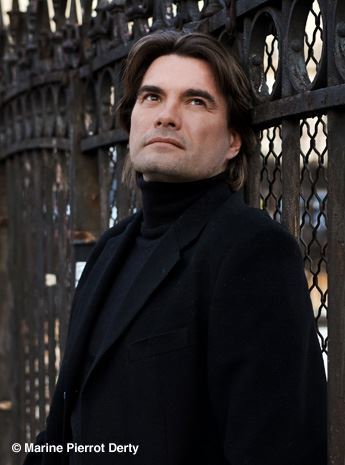 Nicolas Horvath began his music studies at Monaco’s Académie de Musique et de Théâtre Prince Rainier III and soon began to make an impression on a number of artists who would become his mentors. Aged 16 he caught the attention of the American conductor Lawrence Foster before coming to the notice of several distinguished international pianists, including Liszt specialist Leslie Howard. He is the recipient of numerous awards, including First Prize at both the Scriabin and the Luigi Nono International Competitions. He has become noted for hosting concerts of unusual length, sometimes lasting over twelve hours, such as the overnight performance of the complete piano music of Erik Satie at the Paris Philharmonie before a cumulative audience of 14,000 people. In 2019 he performed alongside Philip Glass at the same venue in a programme devoted to the American composer’s piano music. Horvath’s extensive and varied discography on Grand Piano includes the highly acclaimed Philip Glass solo piano music edition, Glassworlds; the complete piano works of Erik Satie; piano sonatas by the Estonian composer Jaan Rääts and music by the American experimental composer Alvin Lucier; Carl Czerny’s 30 Études; and lesser-known piano music by Claude Debussey, Anne-Louise Brillion de Jouy and Hélène de Montgeroult. Nicolas is a Steinway Artist.
Nicolas Horvath began his music studies at Monaco’s Académie de Musique et de Théâtre Prince Rainier III and soon began to make an impression on a number of artists who would become his mentors. Aged 16 he caught the attention of the American conductor Lawrence Foster before coming to the notice of several distinguished international pianists, including Liszt specialist Leslie Howard. He is the recipient of numerous awards, including First Prize at both the Scriabin and the Luigi Nono International Competitions. He has become noted for hosting concerts of unusual length, sometimes lasting over twelve hours, such as the overnight performance of the complete piano music of Erik Satie at the Paris Philharmonie before a cumulative audience of 14,000 people. In 2019 he performed alongside Philip Glass at the same venue in a programme devoted to the American composer’s piano music. Horvath’s extensive and varied discography on Grand Piano includes the highly acclaimed Philip Glass solo piano music edition, Glassworlds; the complete piano works of Erik Satie; piano sonatas by the Estonian composer Jaan Rääts and music by the American experimental composer Alvin Lucier; Carl Czerny’s 30 Études; and lesser-known piano music by Claude Debussey, Anne-Louise Brillion de Jouy and Hélène de Montgeroult. Nicolas is a Steinway Artist. The Composer(s)
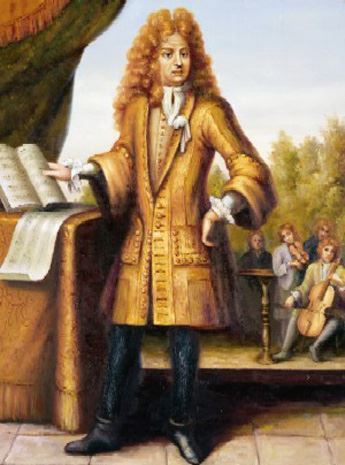 Italian by birth, Lully made his career in France, where he rose from the position of a page to Mlle de Montpensier to that of Composer of the King’s Music, Master of Music to the Royal Family, and to a position of complete control of all musical performances that involved singing throughout. He collaborated with Molière and with Corneille, and, more particularly, with the poet Quinault, creating comédies-ballets and tragédies lyriques, in both of which there was an element of dance (a French royal preoccupation). The most important French composer of his period, his development of the French overture—with its introductory, slow dotted rhythms and ensuing fugal section—was influential, as was his insistence on orchestral discipline, particularly in the matter of string bowing.
Italian by birth, Lully made his career in France, where he rose from the position of a page to Mlle de Montpensier to that of Composer of the King’s Music, Master of Music to the Royal Family, and to a position of complete control of all musical performances that involved singing throughout. He collaborated with Molière and with Corneille, and, more particularly, with the poet Quinault, creating comédies-ballets and tragédies lyriques, in both of which there was an element of dance (a French royal preoccupation). The most important French composer of his period, his development of the French overture—with its introductory, slow dotted rhythms and ensuing fugal section—was influential, as was his insistence on orchestral discipline, particularly in the matter of string bowing. 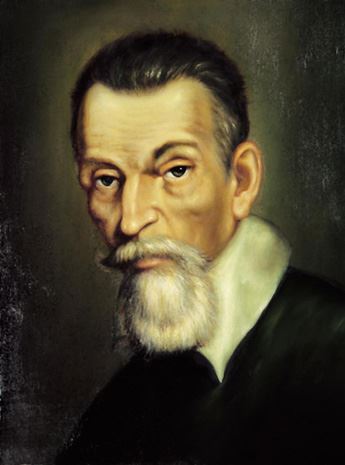 Born in Cremona in 1567, Claudio Monteverdi served at the court of the Dukes of Mantua from the early 1590s until 1612, when he moved to Venice as maestro di cappella at the basilica of St Mark, a position he retained until his death in 1643. His importance as a proponent of the so-called seconda prattica, the new concerted music characteristic of the early Baroque, is unquestioned, as is his pre-eminence in the development of the new form of opera that sprang from the combination of music and rhetoric in the art of Italian monody.
Born in Cremona in 1567, Claudio Monteverdi served at the court of the Dukes of Mantua from the early 1590s until 1612, when he moved to Venice as maestro di cappella at the basilica of St Mark, a position he retained until his death in 1643. His importance as a proponent of the so-called seconda prattica, the new concerted music characteristic of the early Baroque, is unquestioned, as is his pre-eminence in the development of the new form of opera that sprang from the combination of music and rhetoric in the art of Italian monody. 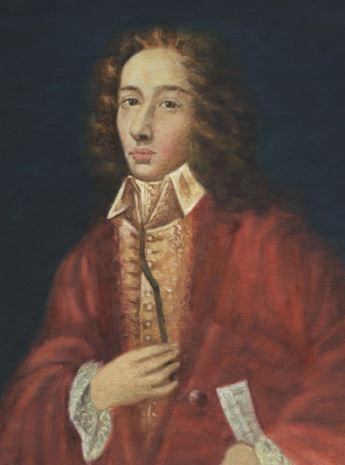 Pergolesi was a composer of considerable importance in the development of Italian comic opera in the early 18th century, making a singular contribution during a remarkably brief career. Born in 1710, he studied in Naples and became maestro di cappella there to a member of the vice-regal court in 1732, later entering the service of another nobleman after the Bourbon restoration.
Pergolesi was a composer of considerable importance in the development of Italian comic opera in the early 18th century, making a singular contribution during a remarkably brief career. Born in 1710, he studied in Naples and became maestro di cappella there to a member of the vice-regal court in 1732, later entering the service of another nobleman after the Bourbon restoration. 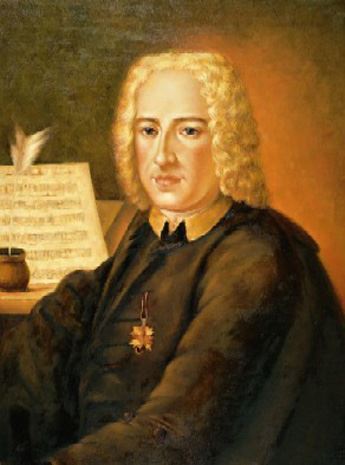 Alessandro Scarlatti, a native of Palermo, made his principal career in Naples, where he was instrumental in the development of 18th-century Neapolitan opera. Instrumental music by Alessandro Scarlatti includes keyboard toccatas and concertos as well as concerti grossi, trio sonatas and solo sonatas, all in the established style of the time.
Alessandro Scarlatti, a native of Palermo, made his principal career in Naples, where he was instrumental in the development of 18th-century Neapolitan opera. Instrumental music by Alessandro Scarlatti includes keyboard toccatas and concertos as well as concerti grossi, trio sonatas and solo sonatas, all in the established style of the time. 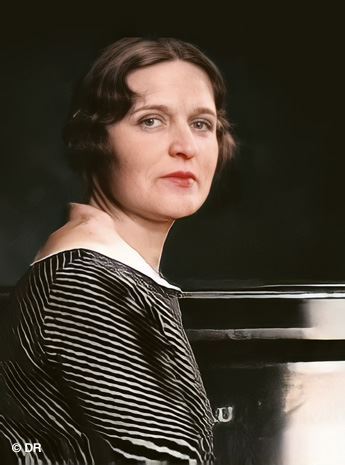 Germaine Tailleferre is best known for being the only female member of the French group of composers known as Les Six, alongside Georges Auric, Louis Durey, Arthur Honegger, Darius Milhaud and Francis Poulenc. Although a prolific composer, until recently little of her music was performed regularly, and even now, forgotten works are being rediscovered.
Germaine Tailleferre is best known for being the only female member of the French group of composers known as Les Six, alongside Georges Auric, Louis Durey, Arthur Honegger, Darius Milhaud and Francis Poulenc. Although a prolific composer, until recently little of her music was performed regularly, and even now, forgotten works are being rediscovered. Reviews
“Most of the pieces are under one minute, but the overall effectiveness of the 16-minute group is always engaging and interesting. The attention Horvath pays to every little detail of every little piece makes for a great start to a projected series.” – Fanfare
“…The attention Horvath pays to every little detail of every little piece makes for a great start to a projected series.” – American Record Guide
“A fine disc which displays the enormous breadth of Tailleferre’s achievement, and celebrates her outstanding musical gifts. I look forward to the next volume in this exciting series.” – MusicWeb International

“The excellent pianist (and composer) Nicolas Horvath offers us a first glimpse of her [Tailleferre’s] works for piano, 55 pieces of all genres, well programmed, in which the clarity, vivacity and poetry of the playing work wonders.” – La Libre Belgique

“Here on the record are the fast, short lifetimes with the piano, played clearly and freshly by her compatriot Nicolas Horvath” – gregersDH
“The whole series promises to be very rewarding with Nicolas Horvath’s performances being highly praised by the composer’s granddaughter.” – Lark Reviews
“The French composer’s shapeshifting piano works have a great champion in Nicolas Horvath” – The Guardian

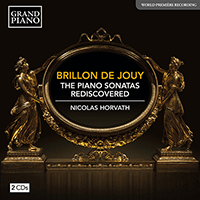
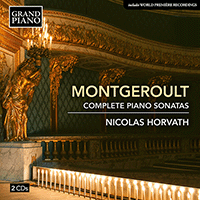
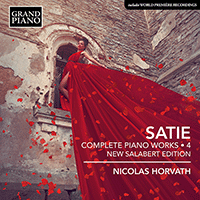
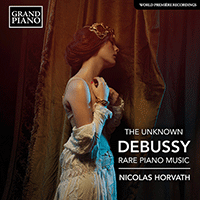
 Grand Piano has gained a reputation for producing high quality recordings of rare keyboard gems. Dedicated to the exploration of undiscovered piano repertoire, the label specialises in complete cycles of piano works by many lesser-known composers, whose output might otherwise have remained unknown and unrecorded.
Grand Piano has gained a reputation for producing high quality recordings of rare keyboard gems. Dedicated to the exploration of undiscovered piano repertoire, the label specialises in complete cycles of piano works by many lesser-known composers, whose output might otherwise have remained unknown and unrecorded.






